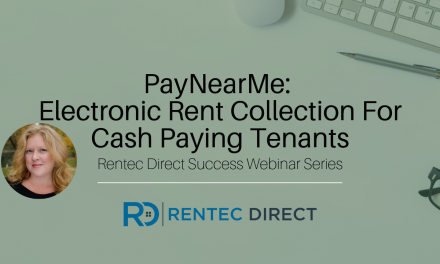
Investing in real estate can be a powerful opportunity, but without the right expertise, especially in the realm of taxes, you may not get the most out of your investment. Real estate tax experts Amanda Han and Matt MacFarland from Keystone CPA can show you how to make the most of your real estate investments in their jam-packed informational session hosted by Rentec Direct.
Savvy investors and beginners alike should understand that navigating financials when it comes to owning rental properties goes beyond simply collecting rental income. There are tax advantages, deductions, savings, and ownership strategies designed to maximize your profits for years.
In this webinar hosted by Rentec Direct, real estate tax experts Amanda Han and Matt MacFarland help investors understand key tax strategies you can use to maximize your rental property profits.
Justice Learned Hand said that, “In America, there are two tax systems; one for the informed and one for the uninformed. Both are legal.”
Amanda and Matt routinely work with landlords and real estate investors on tax advantages, deductions, savings, and ownership strategies related to rental properties. They help educate investors on how to maximize tax write-offs, legal entity strategies, tax-efficient ways to access profit, how to use 401K money for real estate, and much more. Amanda and Matt are authors of the highly rated book Tax Strategies for the Savvy Real Estate Investor, and they have been featured in prominent publications, including the Forbes Finance Council, Money Magazine, Talks at Google, CNBC’s Smart Money Talk Radio, as well as the BiggerPockets podcasts.
Did you miss the live training?
After they occur, we also put all recorded live training sessions and webinars on the Rentec Direct YouTube and Rentec Direct Vimeo page for you to access and share at your convenience.
If you missed the live training session, don’t miss out on the valuable information these tax experts have to offer. Watch the webinar recording on the Rentec Direct Youtube or Vimeo pages, or sign up to watch the recording on-demand through Livestorm. Here you can also find other Rentec Direct webinars that you may be interested in attending in the future.
Property managers are encouraged to watch to share the information with owners and demonstrate your expertise in helping your owners feel confident in their rental management!
Tax Strategies To Maximize Real Estate Investments For 2024
January is the best time to start focusing on your investment strategy and set yourself up for advantageous tax benefits throughout the year.
What did the webinar cover?
Understanding the nuances and basic principles of tax strategies can ensure you build your wealth faster. Taking advantage of good tax planning is key to your long-term success as an investor. Amanda and Matt explain that average Americans lose more to taxes than to food, clothing, and housing combined each year.
Throughout the webinar, Amanda and Matt will discuss:
- The latest in proposed tax changes for real estate investors
- Maximize your tax deductions as a landlord, including commonly-missed deductible expenses such as:
- Professional development
- Business meals
- Business travel
- Home office
- Business miles/ car expenses
- Income shifting strategies for the savvy investor
- Legal entity: The right (and wrong) ways to hold your properties
- How to get tax-free income for life using your retirement money for real estate
- How to avoid the #1 most common & costly tax mistake made by real estate investors
What is the #1 most common & costly tax mistake made by real estate investors?
The stress of tax season can cause some investors to simply focus on this year’s tax filing. However, Amanda and Matt explain that filing taxes is not the same as proactively planning. The #1 most common & costly tax mistake made by real estate investors is not tax planning based on your specific situation. When filing taxes during tax season, don’t just think about last year’s deductions, but speak with your tax advisor and plan strategically for the future with the goal of minimizing taxes for next year.






Thanks you so much for sharing valuable insights and expert advice on tax planning for landlords and real estate investors in the 2024 webinar recap. I love to read your this kind of post.
Thank you; so glad you found it valuable!